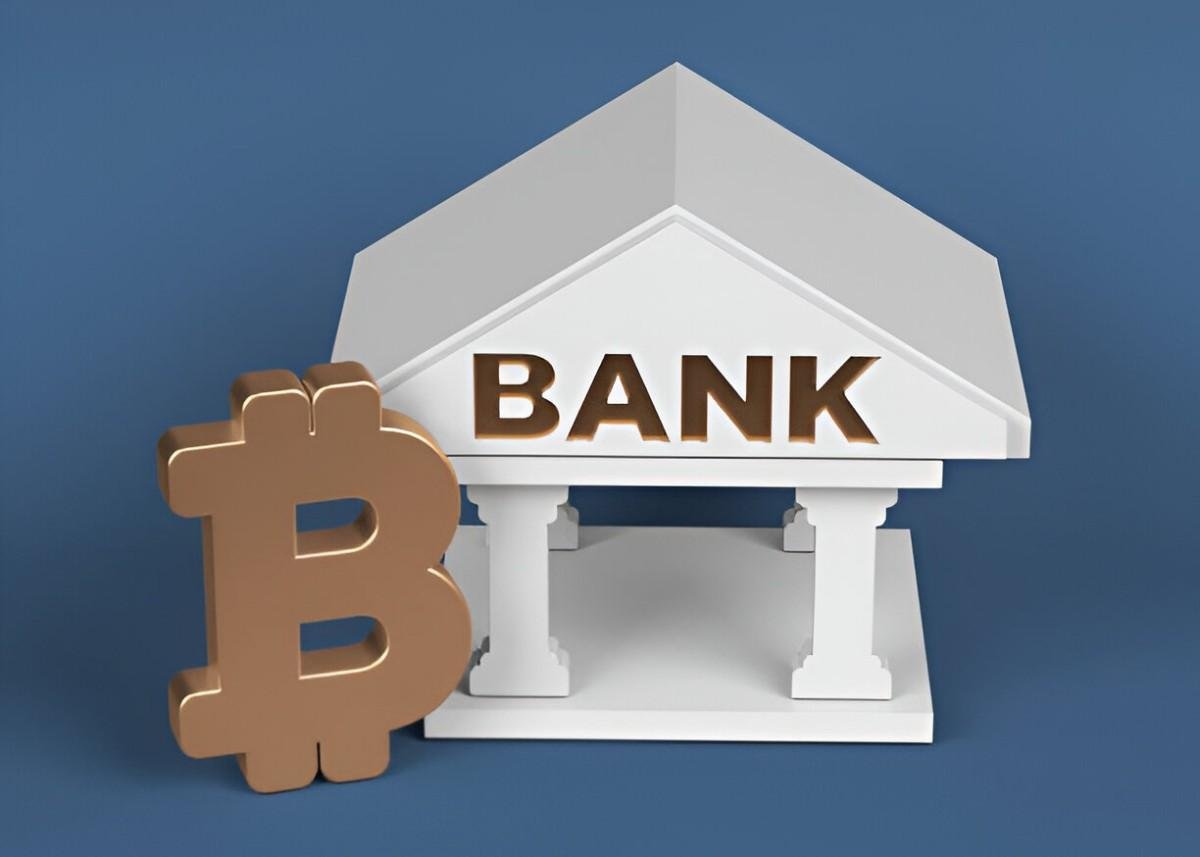As the financial world evolves, a bank that accepts cryptocurrency as funds could potentially reshape how we think about money and transactions. For many, cryptocurrencies represent a new frontier in the way we handle value, transcending traditional banking methods. In this article, I’ll explore the concept of a bank that allows cryptocurrency as a form of deposit, what this means for the future of finance, and how it compares to traditional banking systems.
Table of Contents
Introduction to Cryptocurrency in Banking
Cryptocurrencies have existed for over a decade, with Bitcoin being the first and most well-known. Unlike traditional currencies issued by governments (also known as fiat currencies), cryptocurrencies are decentralized and rely on blockchain technology to secure transactions. These digital currencies have gained significant popularity due to their potential for high returns, global accessibility, and the anonymity they offer.
Historically, the financial sector has been slow to adopt cryptocurrencies due to concerns around security, regulation, and volatility. However, as cryptocurrencies mature, many financial institutions have begun to consider them as a legitimate form of currency. This leads to the question: could there be a bank that accepts cryptocurrency as funds?
The short answer is yes. Some banks and financial institutions have already started integrating cryptocurrencies into their services. These banks offer a unique opportunity for individuals and businesses to hold, spend, and even earn interest on their digital assets. In this article, I’ll take you through how such banks work, how they compare to traditional banks, and the benefits and challenges they present.
How a Bank Accepting Cryptocurrency Works
At its core, a bank that accepts cryptocurrency functions much like any other bank, but with a digital twist. Here’s an overview of how these banks operate:
- Digital Wallet Integration: The first thing you need to know is that these banks offer digital wallets to store your cryptocurrency. These wallets allow you to deposit, withdraw, and transfer digital assets seamlessly.
- Currency Conversion: Cryptocurrency isn’t yet universally accepted as a means of payment. A cryptocurrency bank can act as a bridge between the digital and fiat worlds. It allows you to convert your crypto into fiat currency (like US dollars or euros) when needed, or hold it as a digital asset for future use.
- Interest Earning: Some banks that accept cryptocurrency offer interest on your holdings, similar to traditional savings accounts. The rate may vary depending on the type of cryptocurrency you hold and the specific policies of the bank.
- Transaction Capabilities: These banks provide you with tools to send and receive cryptocurrency, either to other users of the same bank or to external wallets. These transactions can occur quickly and with relatively low fees, depending on the cryptocurrency used.
Benefits of a Bank That Accepts Cryptocurrency
- Access to New Investment Opportunities: One of the biggest benefits is the access to a new asset class. Traditional banks usually limit you to saving and investing in fiat currencies, stocks, and bonds. A bank that accepts cryptocurrency opens up investment in various digital assets, such as Bitcoin, Ethereum, or even lesser-known altcoins.
- Global Reach: Unlike traditional banking systems that are often limited by geographical borders and regulations, cryptocurrency operates globally. This means that if you bank with a cryptocurrency-friendly institution, you could send money to someone on the other side of the world without the need for conversion fees or long delays.
- Privacy and Security: Cryptocurrency transactions are secured with advanced cryptography, which provides an extra layer of security compared to traditional banking systems. Furthermore, cryptocurrency transactions offer more privacy since users don’t have to disclose personal information when transacting.
- Low Fees: Compared to traditional banking methods, cryptocurrency transactions can have much lower fees. This is particularly true for international transfers, which often come with high costs when done through traditional banking networks.
Challenges of a Bank That Accepts Cryptocurrency
- Volatility: Cryptocurrencies are notorious for their volatility. Prices can fluctuate dramatically in a short period, which makes it risky for both the banks and their customers. If you hold significant amounts of cryptocurrency, you might see the value of your assets drop suddenly.
- Regulatory Uncertainty: The regulatory environment around cryptocurrency is still evolving. Governments around the world have different stances on how they treat cryptocurrencies. A bank that accepts cryptocurrency needs to ensure it complies with the ever-changing regulations, which could present legal challenges.
- Limited Acceptance: While the use of cryptocurrency is growing, it’s still not universally accepted. Many merchants, service providers, and financial institutions do not accept cryptocurrencies as payment. This means that even if you hold a significant amount of digital assets, you may find it difficult to use them for day-to-day purchases.
- Security Risks: While blockchain technology itself is secure, cryptocurrency exchanges and wallets are still susceptible to hacks. There have been numerous incidents where crypto exchanges have been breached, leading to the loss of funds. If you’re not careful with your private keys and wallet security, you could lose your holdings.
Cryptocurrency vs Traditional Bank: A Comparison
To better understand the differences between a traditional bank and a cryptocurrency-accepting bank, let’s break down some key factors.
| Feature | Traditional Bank | Cryptocurrency Bank |
|---|---|---|
| Currency Type | Fiat currency (USD, EUR, etc.) | Cryptocurrency (Bitcoin, Ethereum, etc.) |
| Regulation | Heavily regulated by governments | Less regulated, depending on jurisdiction |
| Transaction Speed | Can take days (especially for international transfers) | Usually faster, depending on the network |
| Fees | High fees for international transfers and ATM withdrawals | Lower fees, especially for cross-border transactions |
| Security | High, with multiple layers of protection | High, but vulnerable to hacks and phishing attacks |
| Privacy | Limited, personal details required | Greater anonymity, but may vary |
| Interest on Deposits | Usually offers low interest rates | Some offer interest on crypto holdings |
| Accessibility | Physical locations, online and mobile banking | Online and mobile banking, but fewer physical branches |
Real-World Examples
- BlockFi: BlockFi is a well-known platform that offers interest-earning accounts for cryptocurrency holders. You can deposit Bitcoin, Ethereum, and other digital assets into your account and earn interest. BlockFi provides a bridge between traditional banking and the cryptocurrency world by offering both crypto services and fiat currency capabilities.
- Nexo: Nexo offers users the ability to deposit cryptocurrency and earn interest on their holdings, much like a savings account. They also offer the ability to take out loans using crypto as collateral, which is an interesting feature that is not available in traditional banks.
Calculations and Example
Let’s assume you have $10,000 worth of Bitcoin in your cryptocurrency account. If the bank offers an annual interest rate of 5%, you would earn $500 in interest over the year. This can be a significant addition to your portfolio, especially if the value of your crypto holdings increases over time.
| Deposit Amount | Interest Rate | Interest Earned (1 Year) |
|---|---|---|
| $10,000 | 5% | $500 |
| $20,000 | 5% | $1,000 |
| $50,000 | 5% | $2,500 |
This example demonstrates how interest can accumulate in a cryptocurrency-friendly bank. Of course, the value of Bitcoin may fluctuate, but the potential to earn interest in a digital asset is certainly an intriguing proposition.
The Future of Cryptocurrency in Banking
As we look toward the future, the integration of cryptocurrency into banking systems seems inevitable. Traditional banks are starting to experiment with crypto products, and it’s possible that we will see more hybrid systems that combine the best of both worlds. For instance, banks may offer customers the ability to hold both digital assets and fiat currency in a single account, with easy conversion options.
Moreover, as more people adopt cryptocurrencies, the demand for banks that accept digital currencies will likely increase. However, the growth of this sector will depend on how regulations evolve and how the security risks are addressed.
Conclusion
A bank that accepts cryptocurrency as funds offers a new and exciting way for individuals and businesses to manage their digital assets. While it comes with its own set of challenges, such as volatility and regulatory uncertainty, the benefits are undeniable. Lower fees, global access, and the potential for higher returns are just some of the advantages that cryptocurrency-friendly banks bring to the table. As the sector matures, I believe we’ll see more innovation in the banking industry, allowing cryptocurrency holders to better integrate their digital assets into everyday financial life.





